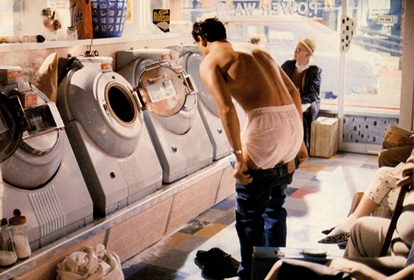
The study, published in a new report entitled “Sound Science: How music is the missing link in marketing ROI” by MassiveMusic, is claimed to be the largest and most rigorous conducted into the impact of music in advertising in the UK.
Conducted in partnership with the IPA, Visiting Professor at Ravensbourne University Les Binet, Professor of Systematic Musicology at the University of Hamburg Daniel Müllensiefen, and neuro and behavioural research company CloudArmy, the study took 150 of the UK’s most prominent ads on the IPA database and tested them on 7,500 UK consumers.
They were then evaluated using Campaign MusicIQ MassiveMusic’s consumer research methodology and tested on four metrics: engagement, how much a track captures the audience’s attention; fit, how well the music matches the visuals; surprise, how creatively surprising the music is; and, finally, recall, how well it can be remembered.
While BBH London’s classic Levi’s 501s “Launderette” was arguably one of the first TV ads to lean heavily into pop music, with Marvin Gaye’s I Heard It Through the Grapevine, this study claims to prove music’s increasingly important role within the marketing landscape and draws a direct line between strategic music choices and real business outcomes.
Among the key findings are the fact that engaging music is 32% more likely to see a campaign get a higher return on marketing investment – in some cases gains can be up to double.
This, the report authors argue, is significant because it quantifies how well an ad generates profit – the “bang for your buck”. And, they maintain that, for the first time, this study has proven that music is a significant contributor to a high return of investment. If listeners connect with the track, they will feel warm towards the brand, prompting higher sales and therefore returns.
Moreover, music customised for fit dramatically reduces price sensitivity – up to 7x more effectively than campaigns with lower musical fit.
The study also reveals that when music fits closely with the visual, it decreases price sensitivity, meaning consumers will be willing to pay higher prices.
However, if the music matches too perfectly, it can reduce the element of surprise that helps things go viral, making the brand less likely to gain sudden fame. Custom music that has been created to match the film’s story and timing had the highest chance of achieving a strong fit.
Even so, surprising, highly unexpected music choices – or even a hidden gem – can drive a 5x brand fame lift, with the top 20% musical choices being 26% more likely to make a brand more widely known.
Additionally, it saw a positive correlation between the use of surprising music and ROMI – proving that originality pays off. Costa Coffee’s 2016 Creating a Nation of Coffee Lover’s campaign – which featured a re-recording of Kiss’ I Was Made For Loving You by a choir – scored most highly on this metric.
In addition, memorable music strengthens brand recall and reinforces campaign messages, which increases mental availability of the brand.
The research demonstrates that when music is easily remembered, it will help the brand be top-of-mind in a purchase situation. Catchy, easily recalled tracks, such as Felix Jaehn’s version of the Chaka Khan and Rufus classic of Ain’t Nobody saw TUI’s 2020 How We Crossed the T’s and dotted the I’s and put TUI at the Top campaign scored highly.
When selecting music for a campaign, consideration should be given to whether it is surprising, fitting, engaging, and memorable. These qualities serve as strategic guardrails, informing choices that not only enhance creative impact but also deliver proven commercial results.
MassiveMusic global strategy director Roscoe Williamson said: “This collaboration with the IPA has allowed us to bridge the gap between musical creative intelligence and evidence. It’s now proven that music is a powerful, multifaceted lever of campaign effectiveness and that there are repeatable ways to select, brief, curate, or create music that actively fosters it.”
Les Binet added: “The power of music is massively underrated. To date, surprisingly little research has been done on its effects. With the results of this study uncovering its effectiveness, music will be the differentiator that helps define many of the most effective campaigns moving forward.”
Related stories
Oldplay: Over 50s Brits get bitten by music festival bug
Golden Years: Google deal to keep BMG stars shining
Nile Rodgers: I love data but failure brings Good Times
Spotify ‘Censured’: Gotta fight for your right to party
Ham, egg and Slits? Gousto cooks up Spotify deal
Axeman cometh: Guitar sales hit high note in lockdown
Hey Joe: Jimi Hendrix gets online store 50 years later



Be the first to comment on "Forget the grapevine, science proves music boosts ads"